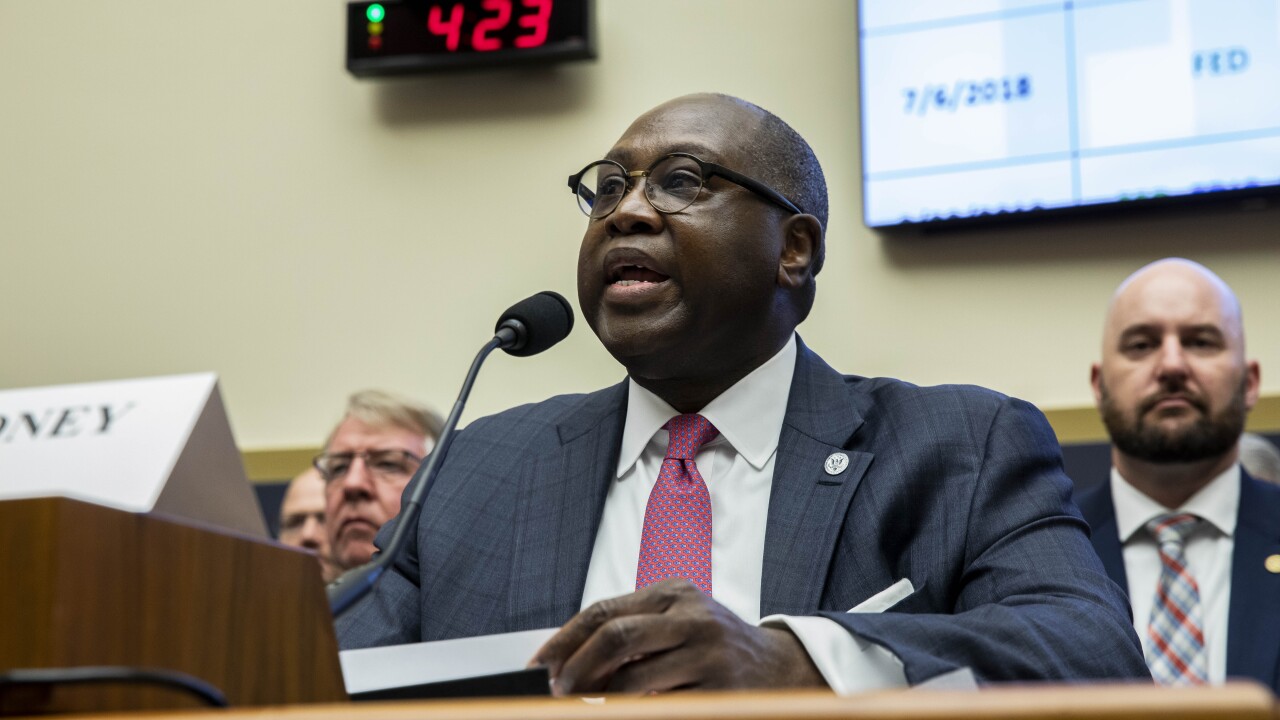One of the biggest bank merger deals so far this year might not have happened were it not for the COVID-19 pandemic.
Short Hills, New Jersey-based Investors Bancorp, which
Though Investors’ dialogue with the unnamed bank was revived early this year, it broke down in April, the filing states. Providence, Rhode Island-based Citizens quickly pounced.

The securities filing also includes an estimate that Investors Chairman and CEO Kevin Cummings, who is expected to join Citizens’ board of directors when the deal closes next year, will receive $26.4 million in merger-related compensation.
For Citizens, the $3.5 billion deal for Investors promises access to the New Jersey market and an increased presence in the Philadelphia and New York metro areas. It would be Citizens’ first bank acquisition since the bank was spun off from the Royal Bank of Scotland in 2015. (Citizens has made a number of nonbank acquisitions since then and earlier this year said it was
In explaining its decision to explore a sale and urging its shareholders to approve the merger, Investors pointed to several considerations that banks frequently cite when they decide to sell. Those factors included the need to spend more money on technology in order to keep pace with bigger companies, the impact of low interest rates on profitability and increasing competition from fintechs.
The acquisition, which still needs approval from regulators, would add $27 billion of assets to Citizens’ $185 billion balance sheet. Citizens would also gain $20 billion of deposits and 154 branches.
Investors
Citizens expects to accelerate the turn away from CRE, including multifamily, but to do so gradually and without major divestitures, Chairman and CEO Bruce Van Saun said in July during a conference call with analysts.
“I think over time you’ll see commercial real estate become a smaller element of the balance sheet as we grow consumer lending and also expand in the commercial side of the house,” he said.
Last week’s filing with the Securities and Exchange Commission shed new light on how Investors’ deal with Citizens deal fell into place.
In July 2019, Cummings spoke with the president and CEO of the unnamed bank, which has operations in the same region as Investors, according to the filing. The same month, the two companies signed a confidentiality agreement in an effort to facilitate further discussions.
Cummings updated the Investors board of directors about the status of the talks as late as February 2020, the filing states. But the following month, the two banks decided to pause any further discussion or due diligence as a result of the COVID-19 outbreak.
In January 2021, the CEO of the unnamed bank contacted Cummings, and the talks resumed. But in mid-April, the unnamed bank stopped the due diligence process and ended the negotiations, according to the securities filing.
Then in late April, Van Saun emailed Cummings to request an in-person meeting, the filing states. The two CEOs met on May 5, and by late July a deal had been reached.
Cummings has been Investors’ CEO since 2008 and its chairman since 2018. Under the merger agreement, he is expected to receive nearly $23 million in cash, plus another $2.4 million equity and other compensation, based on certain assumptions.
Domenick Cama, Investors’ president and chief operating officer, is expected to receive an estimated $15.7 million in merger-related compensation, according to the filing.
Cama would serve as co-head of the integration and New York City metro president for the combined bank.
Citizens and Investors expect to complete the merger in the second quarter of 2022.





